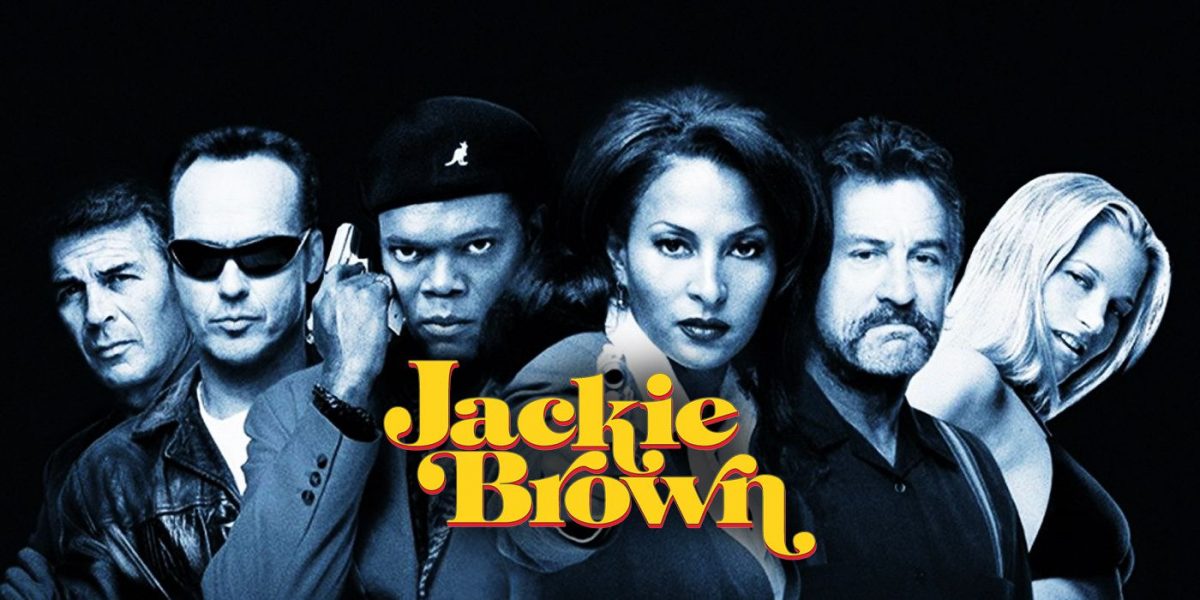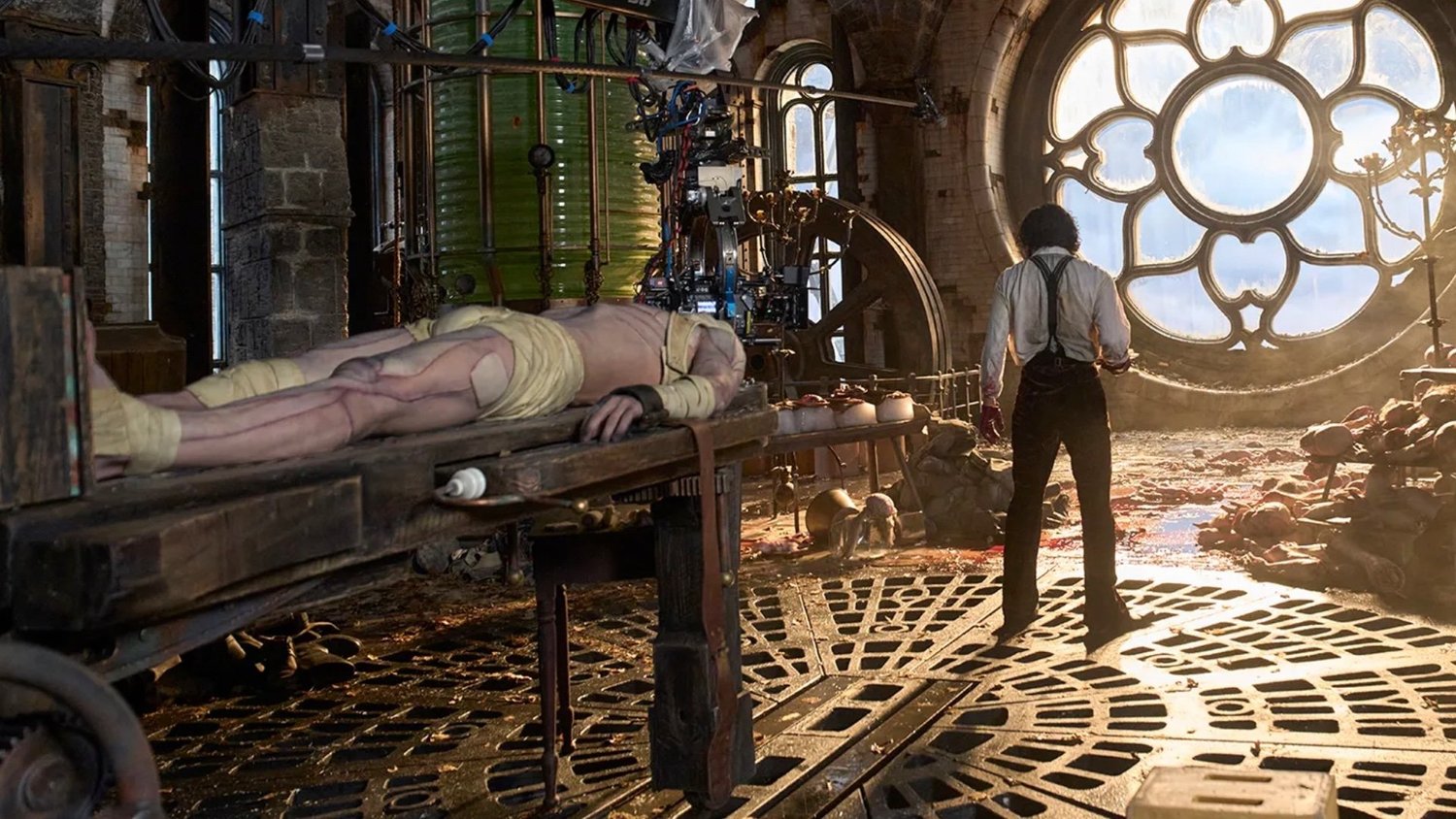
Why Pam Grier’s Jackie Brown Is Quentin Tarantino’s Most Important Character
Jan 1, 2023
Throughout his storied career, Quentin Tarantino has crafted characters that transcend the bounds of the films in which they exist, embodying a bold and distinctly cinematic vision of ensemble storytelling. From immortalized fan favorites like Jules Winnfield (Samuel L. Jackson) in Pulp Fiction and Beatrix Kiddo (Uma Thurman) in Kill Bill to immediately iconic figures like Django (Jamie Foxx) in Django Unchained and Cliff Booth (Brad Pitt) in Once Upon a Time in Hollywood, Tarantino’s knack for interweaving individual stories simultaneously evokes an ornate tapestry of pop culture pastiche and a red-splattered Jackson Pollock-esk action painting. His storytelling balances order and chaos in a manner few other directors achieve.
Out of every character in the director’s filmography, Pam Grier’s incarnation of Jackie Brown, the lead character in Elmore Leonard’s novel Rum Punch from which this film is adapted, stands out from the rest as a particularly complex encapsulation. Grier’s performance also acts as a revisionist reckoning of her acting career, demonstrating the collaborative nature of Jackie’s specific character creation. Through Tarantino’s nuanced screenwriting – regaled by Leonard as some the best adaptation of his work – and a tender titular performance, Jackie Brown in Jackie Brown both inhabits and subverts the traditional Tarantino protagonist through the historical reflexivity of Pam Grier’s performance.
RELATED: Every Quentin Tarantino Movie Ranked from Worst to Best
Jackie Brown Is a Socio-Politically Complex Character
Image via Miramax
Although this collage-style reflexive character type is a common occurrence in Tarantino’s body of work, both the role of this film as a literary adaptation and the meta-historicization of Pam Grier as a filmic figure through the protagonist sets Jackie Brown apart as a particularly socio-politically complex character. While Uma Thurman’s protagonist in Kill Bill serves as an amalgamation of Bruce Lee in Game of Death and the vengeful bride in Lady Snowblood, Thurman’s casting strips the figure of a specific sociocultural import that Grier’s Jackie Brown inhabits.
In the process of adapting Rum Punch, Tarantino changed the protagonist’s race. In Leonard’s novel, the lead character is a white woman named Jackie Burke. Tarantino, instead, writes her as a black woman named Jackie Brown with Grier in mind for the leading role, intentionally playing off of Grier’s iconic character Foxy Brown to establish the film’s revisionist tone.
Further establishing the film as a critical pastiche of the blaxploitation genre, the opening credits of the film introduce Jackie Brown in a panning long take of Grier floating down a moving sidewalk in an airport while the song “Across 110th Street” plays in the background. By paying homage to Benjamin Braddock (Dustin Hoffman)’s malaise-driven mindless maneuvering down a similar airport sidewalk in the opening scene of The Graduate as well as musically referencing the title song of Barry Shear’s classic film, Tarantino’s film comments on the ironies of blaxploitation cinema’s place in Hollywood history by simultaneously conveying a sense of motion within a space of stillness, as black icons like Pam Grier were both elevated through star-making cinematic visibility and undermined by the propagation of racist stereotypes onscreen. Rather than playing into the stereotypes of the controversial subgenre or the immobility evoked in the opening shot, Tarantino shifts directly into the heist-driven plot that would characterize Jackie’s narrative arc.
Jackie Brown Is an Empowered Yet Embattled Pawn in a Larger Criminal Plot
Although heist stories were incredibly common in the early films of Pam Grier’s career including both Coffy and Foxy Brown, the criminal plan of smuggling half a million dollars to Mexico in Jackie Brown revises the typical positioning of Pam Grier’s character as an empowered yet embattled pawn in a larger criminal plot by centralizing her personal agency and expert counterplan to thwart everyone involved and keep the money for herself. In this capacity, Tarantino’s adaptation of Leonard’s airtight plotting serves as the key factor in Pam Grier’s reconciliation with her previous persona. Jackie remains one step ahead of the villain’s acts of manipulation and mistrust.
Tarantino Avoids Misogyny, Instead Empowering Jackie
Image via Miramax
Even as the film’s ensemble is filled with incredible performances by Samuel L. Jackson, Michael Keaton, and Robert De Niro. Every figure factors into the overall development of Jackie’s confidence rather than detracting from her character’s progression. While the inclusion of a mostly male ensemble in Foxy Brown and — to a lesser extent — Coffy complicated the feminist angle of Grier’s groundbreaking work through hyper-sexualization and patriarchal plotting, Tarantino avoids centralizing a misogynistic interpretation of the titular character, empowering Jackie to unravel her own romantic desires in every sequence.
Jackie Brown’s Relationship With Max Cherry Is the Film’s Most Impactful
Perhaps the most essential supporting character for Jackie’s overall progression is Robert Forster’s bail bondsman Max Cherry, who remains the most tender and empathetic male character in Tarantino’s body of work. Although Max almost immediately falls for Jackie Brown, the patient progression of the characters’ palpable chemistry allows Jackie to maintain complete control over their romantic destiny. This imbues their relationship with a bittersweet tension throughout the film’s runtime. Furthermore, the ever-growing longing between Max and Jackie enhances the suspense of the central sequences of money swapping in the local mall. This tension raises the personal stakes for Pam Grier’s protagonist as she works to transcend the film’s criminal plotting. By acting as a trustworthy informer and potential partner to Jackie, Max Cherry elevates Jackie’s complexity through a humble decentering of his own character’s desires, subverting typical gender roles in both blaxploitation films and Tarantino’s body of work.
When Jackie finally secures the cash following a climactic shootout, Pam Grier’s protagonist returns to the bail bond office to invite Max Cherry to come to Spain with her. After Max informs her that he plans to stay behind, Jackie finally kisses him before departing for Spain alone, solidifying her romantic agency in the satisfying final moments of the film. Even as Max declines to join her on her trip to Madrid with the money in tow, Jackie does not hesitate to fulfill her desires, concluding the film by driving a car to the airport while listening to “Across 110th Street.”
Jackie and Her Car
Image via Miramax
In direct contrast to the immobility of the moving sidewalk in the opening scene, Jackie’s literal control over the car as a method of movement signifies her character’s complex development into an entirely independent figure. As Jackie Brown, Grier embodies a self-assuredness and self-reliance that is only suggested in her earlier acting roles. While films like Coffy and Foxy Brown culminate in acts of violence that allow Grier’s titular figures to assert their controls over misogynistic and racist systems, Jackie Brown’s finale is like a gentle breeze echoing the quiet strength that Jackie possesses throughout the film, showcasing a beautifully complex meta-portrait of Grier’s career through Tarantino’s most fascinating and most important protagonist.
Jackie Brown is available to stream on HBO Max.
Publisher: Source link
TV Shows That Got Canceled In 2024
TV Shows That Got Canceled In 2024 Which 2024 canceled TV show will you miss the most? Share your pick in the comments! Disclaimer: This story is auto-aggregated by a computer program and has not been created or edited by…
Dec 22, 2024
How The Talk Emotionally Ended After 15 Years
The Talk has officially said "Goodbye." After 15 seasons and 2,993 episodes, the CBS daytime show came to an end on Dec. 20 with a heartfelt farewell from hosts Akbar Gbajabiamila, Amanda Kloots, Natalie Morales, Jerry O'Connell and Sheryl Underwood. The episode began with a standing ovation for the…
Dec 22, 2024
Jennifer Lopez Asked About Turning 60, Age
Jennifer Lopez Asked About Turning 60, Age Never ask a woman her age, a man his salary, or Jennifer Lopez how she feels about turning 60. On Sunday, the actor was interviewed by Variety amid the release of her new…
Dec 21, 2024
Lala Kent Shares Text With Ally Lewber After James Kennedy’s Arrest
The BCU (Bravo Cinematic Universe) was shaken on March 3, 2023, when it was confirmed that Tom and Ariana had ended their nine-year relationship amid the revelation that he'd had a seven-month affair with Raquel. "I made mistakes, I was…
Dec 21, 2024











